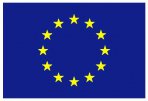United Kingdom: James Chadwick
20th October 1891 – 24th July 1974

James Chadwick was born in Bollington, just south of Manchester in the UK. He was educated in Manchester itself and worked closely with Ernest Rutherford at Manchester University. He then moved to Germany, working with Hans Geiger before returning to the UK to work with Rutherford in 1919, who had since moved to Cambridge.
Chadwick is most famous for proving the existence of neutrons that had been theorized by himself and Rutherford.
In France, Irène and Frédéric Joliot-Curie had bombarded hydrogen atoms in paraffin with emissions released from the element beryllium. Chadwick decided to repeat this experiment but bombarded elements other than hydrogen too. By comparing the energies of recoiling charged particles from these different targets, he showed that the beryllium emissions contained a neutral component with a mass approximately equal to that of the proton. He called it the neutron. Chadwick was awarded the 1935 Nobel Prize in Physics for this work three years after the discovery.
This new subatomic particle was found to be deeply penetrating and capable of splitting heavy nuclei because of its neutrality. This paved the way for the discovery of nuclear fission which has now led to nuclear power,weapons and of course neutron sources.
Chadwick himself continued to be involved in nuclear physics for the whole of his career. His team determined the nuclear cross section of uranium-235, used to assess the probability that a nuclear reaction will occur, and he was involved with the Manhattan Project in America during the Second World War.
References:
Back to The Road to the ESS




